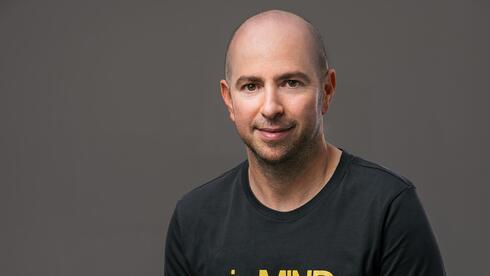
HR in the AI Era
Trullion: “We remain committed to preserving the human touch”
The company joined CTech to discuss how AI is transforming the HR function and its influence on employee productivity.
“As an AI-native company, the integration of AI into our operations isn’t new, it’s part of our foundation,” said Ganit Dekel, Global Head of HR at Trullion. “However, the pace of change requires us to continuously reassess how AI is shaping our roles, hiring priorities, and internal processes.”
Dekel joined CTech as part of its new series, HR in the AI Era, which explores the impact that artificial intelligence will have on the workplace.
“We’re focused on redefining future hiring profiles to reflect evolving skillsets, monitoring internal AI usage from both productivity and security perspectives, and most importantly, preserving space for critical thinking, creativity, and human judgment,” she continued. “Our goal is to ensure we’re managing the technology — not letting it manage us.”
You can read the entire interview below.
Company name: Trullion
Name and title: Ganit Dekel, Global Head of HR
Names of founders and upper management: Isaac Heller
Year of founding: 2019
Investment stage: B
Total investment to date: $30M
Field of activity: AI, Accounting
Number of employees: 95
Office location: Tel Aviv
Number of open positions: 10
On a scale of 1-10, how much does the AI revolution disrupt your company operation in general, and the HR department specifically?
8
How so?
There are two distinct angles to consider when assessing AI's impact on our company and the HR function.
The first is its influence on employee productivity, day-to-day workflows, and evolving skill sets. From this perspective, HR plays a key role in driving adoption across departments, introducing relevant tools, and continuously monitoring how AI affects capacity and performance. At the same time, we’re mindful of maintaining a balance, leveraging AI to boost efficiency without compromising innovation, creativity, or critical human decision-making.
HR is also responsible for adjusting our hiring approach, ensuring we attract talent that’s not only comfortable with AI but capable of using it intelligently and responsibly.
The second angle relates to how AI is transforming the HR function itself. We are increasingly incorporating AI into processes such as talent sourcing, policy management, and operational efficiency. However, we remain committed to preserving the human touch. focusing on relationship-building, authentic communication, and ensuring that technology complements, rather than replaces, the human connection at the heart of HR.
What interesting AI tools do you and your staff use in employee management/recruitment?
We use AI-powered sourcing tools integrated with platforms like LinkedIn and Comeet to improve talent targeting and outreach. In addition, we apply AI in performance data analysis, engagement surveys, and compensation benchmarking. We're also exploring AI assistants to support policy drafting and improve internal workflows while ensuring human review remains central. ChatGPT, Chat, PeopleGPT by Juicebox, and such as.
In which roles or tasks within your company has AI already begun to replace human labor (if at all)?
At this stage, AI is not replacing roles but rather enhancing productivity and enabling a shift in focus. It allows teams to dedicate more time to strategic thinking and decision-making by automating repetitive or administrative tasks. In doing so, AI helps us redefine existing roles, expanding their scope to include higher-value activities rather than eliminating them. This is especially true in areas like HR, finance, and customer success, where AI acts as a supporting layer, not a replacement.
What are the two major challenges you are coping with these days?
Adapting roles and skillsets to the AI shift – As AI tools become more integrated into our day-to-day, we’re working to redefine roles, train teams, and ensure our people feel empowered rather than replaced. The challenge is balancing adoption with continuous learning, while maintaining a culture of creativity and human judgment.
Navigating employee well-being during uncertainty - The ongoing security situation in Israel continues to affect our team emotionally and logistically. Ensuring stability, flexibility, and strong internal communication across regions is essential, especially when supporting employees with varying levels of impact
Have you experienced workforce-related challenges due to the war, and are you still feeling the impact of the security situation on your human resources?
Yes, the war has had a significant and ongoing impact on our workforce. Several employees were called to reserve duty, others are dealing with personal or family-related challenges, and the overall uncertainty continues to affect focus, well-being, and long-term planning.
I personally served on duty for over two months after the war began, which gave me a much closer perspective on the emotional and operational toll it takes. This experience has helped me better understand the level of support our teams need, from mental health resources to flexibility and transparent communication.
Another major challenge has been bringing leaders and individual contributors from different regions to collaborate in Israel. As a global company, we deeply value in-person connection and cross-functional teamwork, and the security situation has made that more difficult to coordinate, both logistically and emotionally.
Have you made changes to your workforce following the increased use of AI tools, both in terms of headcount and internal shifts between departments?
We haven’t made direct changes to headcount as a result of AI adoption, but we are seeing a shift in the nature of roles and responsibilities across departments. AI has allowed us to automate routine tasks, which in turn frees up capacity for more strategic work. This has led to internal discussions about upskilling, rescoping roles, and encouraging mobility across teams based on evolving business needs. We doing a deeper analysis in new hiring due to that, and we’re also incorporating AI fluency as a key skill in our hiring and internal development plans.
How does the global market uncertainty affect your workforce, in terms of employee numbers or departmental reallocations? Are you scaling your workforce up or down in different regions around the world?
Global market uncertainty has made us more thoughtful and selective in our hiring plans. While we are not undergoing major scaling down, we’ve slowed the pace of growth and prioritized roles tied directly to business impact. In some cases, we’ve reallocated resources internally, shifting focus to areas like AI development, customer success, and GTM strategy.
Regionally, we remain stable in Israel, are selectively growing in US and London, and maintaining flexibility in other markets based on changing conditions and opportunities.
Do you estimate that in 2025–2026 you will increase or decrease the number of personnel? Explain why.
We anticipate a moderate increase in headcount during 2025–2026, with a focus on strategic roles that support our growth in AI, product innovation, and global expansion. As our technology evolves, we’ll need talent that can help scale operations, enhance customer experience, and drive efficiency. However, this growth will be measured and aligned with clear business needs, ensuring we maintain agility and financial discipline in a changing market environment.













